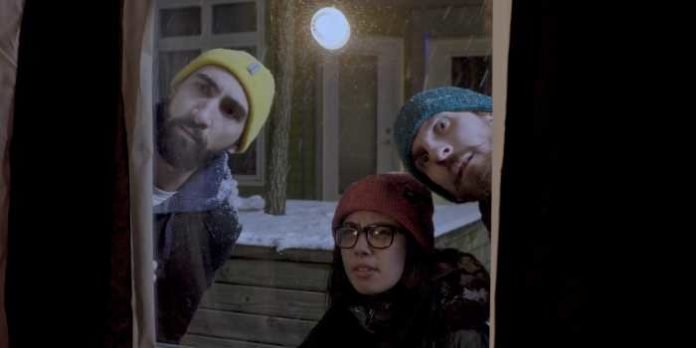Halifax Presents continues its special film series, speaking with local filmmakers to find out more about their film shorts at this year’s FIN Atlantic International Film Festival.
In this Q&A, director Mark Palermo talks about his film Smartificial, which screens as part of the Atlantic Shorts Program 1.
This interview has been edited.
Tell us about Smartificial. What can audiences expect?
Smartificial is a comedy about the first AI to move into a tight-knit community, which views itself as being on the upswing, and as a result, sees itself as very cool. Most people love him, and he becomes a sex stud. But three people are really intent on preserving the sanctity of things and don’t want to see it overrun with lecherous robots. The movie is about this social conflict.
How did you find the story/what was your inspiration for the film?
My upstairs neighbour Ryan McFarlane approached me about making a short movie. He had just bought an iPhone 11, which apparently have very good cameras, and the plan was to shoot something on it. We didn’t know what, but we knew it had to star our other neighbour Jonathan Juurlink because he’s the craziest guy in our building. And I suspected that our friends Tato’ Crisanto and Shahin Mohammadi had screen charisma, too.
It turned out that while Smartificial‘s cinematographer Jeff Wheaton was excited to shoot something on an iPhone for the first time, he finally decided he was more comfortable using his professional equipment. So he brought in his giant Sony camera and rig, and it looks like a real movie now.
I think I was partially inspired by that news story of the cross-country Hitchbot from many years back, and wondering what weird scenarios it was getting into with the drivers. Could it break up a marriage, for instance? There’s also a Pasolini movie called Theorem, in which a strange man encounters a bourgeois family and the impression he leaves internally changes all of them. I’m inherently fascinated by the idea of the people who come into our lives, even briefly, awakening something in us or changing how we think.
Why this particular film now?

I hadn’t solo directed anything in twelve years, and I wanted to get back to it. I’d mostly been writing scripts, and some were very big projects, but there’s also something to the Halifax no budget guerilla film that I’d loved doing back in the ’00s, and that really inspired me.
This one appealed to me because the script was in a place I liked, and also it would be cast with mostly first time actors–friends of Ryan and me who live in and around our building. Most of them are playing people with the same real names as them because it’s written for their personalities or at least sides of them that I’ve noticed. It’s a genuine community project. My goal is to get everyone I know an IMDb page.
As for the story itself, it deals with a lot of current issues, but not in a way where it’s explicitly an “issue movie.” But it’s about bigotry and elitism and sexual politics and is centred on an outsider seeking acceptance in his new home. So there’s all of that.
There’s also the issue of artificial intelligence, where we’re in a time where a lot of people fear robots will take their jobs, or, in the movie’s case, that they’ll make better sexual partners. But there are also good things that will come out of it. Robots can put an end to child sweatshop labour, for example. We’ll need to rethink the way we’re used to living, and that’s what scares people.
What was your biggest challenge in making the film?
It’s always a challenge on these no-budget films to align everyone’s schedule. If you have money, you can just dictate when everything is going to happen. But ultimately, I enjoy the shooting process. It’s in post-production where I get a bit nervous about giant hardware meltdowns happening. “Have I saved these video files in enough places?” “Why is there no audio in the right channel?” etc.
What will surprise audiences about your film?
It’s a science fiction movie without special effects, and it’s a sex comedy without sex. Oops, I spoiled everything. Oh, and most of the actors haven’t been in anything before and are all really good.
What do you hope audiences walk away talking or thinking about after seeing the film?
I want my movies to be unique experiences. I’m less concerned about what they “mean” to viewers, especially in a film like Smartificial, which can have different meanings from different angles. But I always know how I want my scenes to feel—how colourful they are, what kind of music plays in them and where it enters and stops. My movies satirize human behaviour and pop-culture tropes, but I think it’s apparent that I really like all of the characters. I think viewers are ultimately drawn to stories that are about people.
I want the ride of Smartificial to be funny and surprising. I tried to structure a lot of it like newspaper comic strips, but the whole time something a bit heavier is happening beneath that surface. The audience can talk about those ideas, or just about the experience of the movie. I’m careful not to dictate what viewers should think. When a film tells you what to think, it’s done all the thinking for you.
What’s next?
I’m feeling things out right now. But there will be more.
The 2020 FIN Atlantic International Film Festival runs September 17-24. Visit finfestival.ca for a complete listing of film and tickets.


